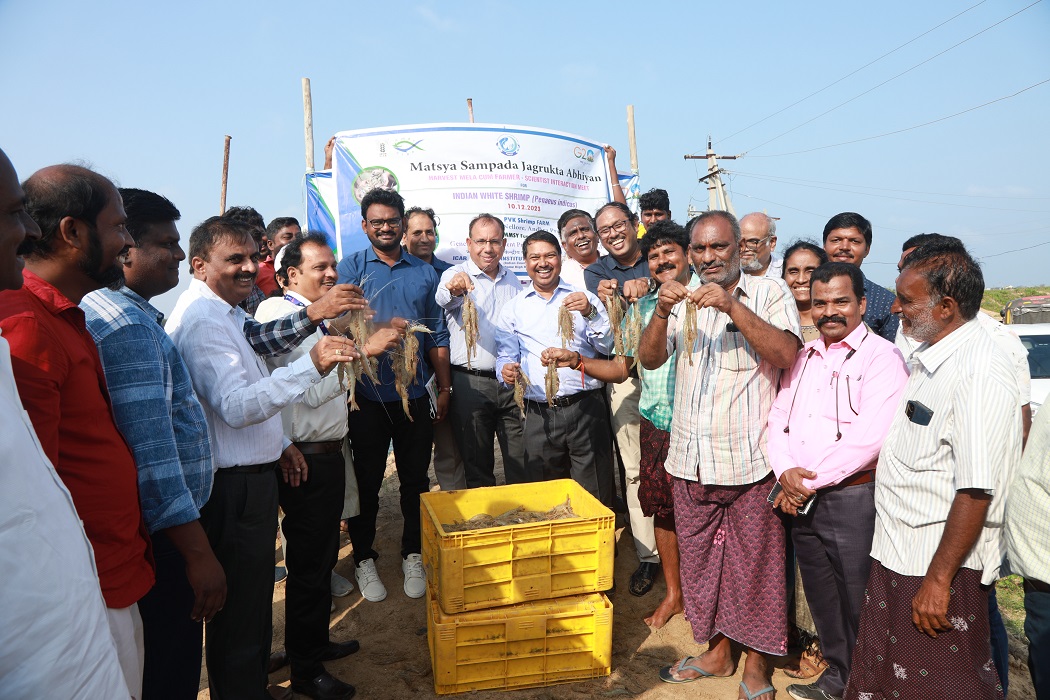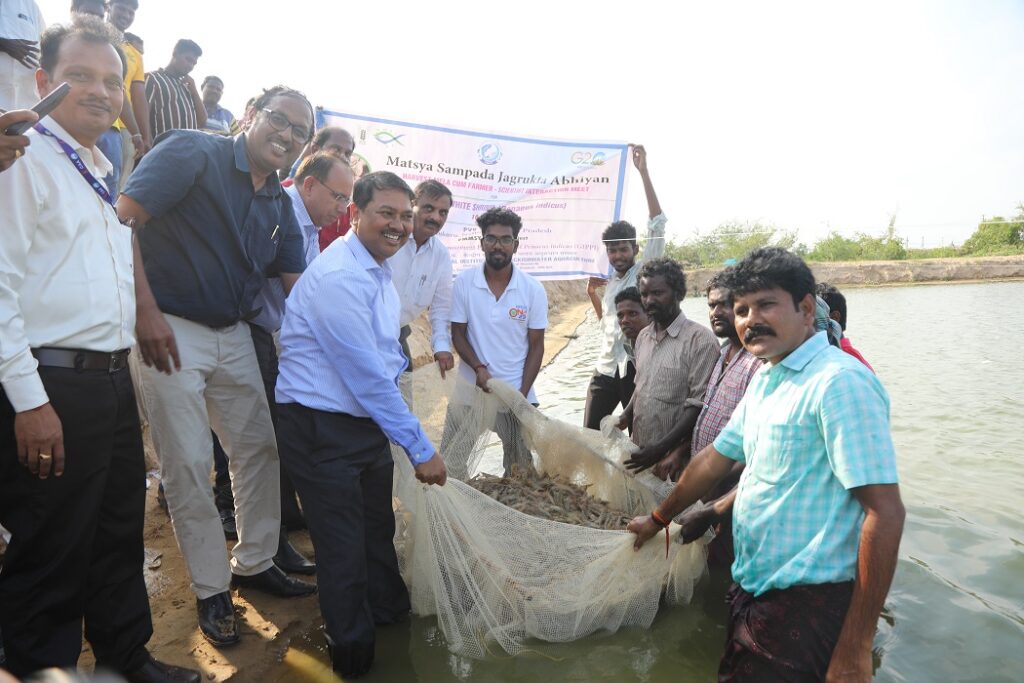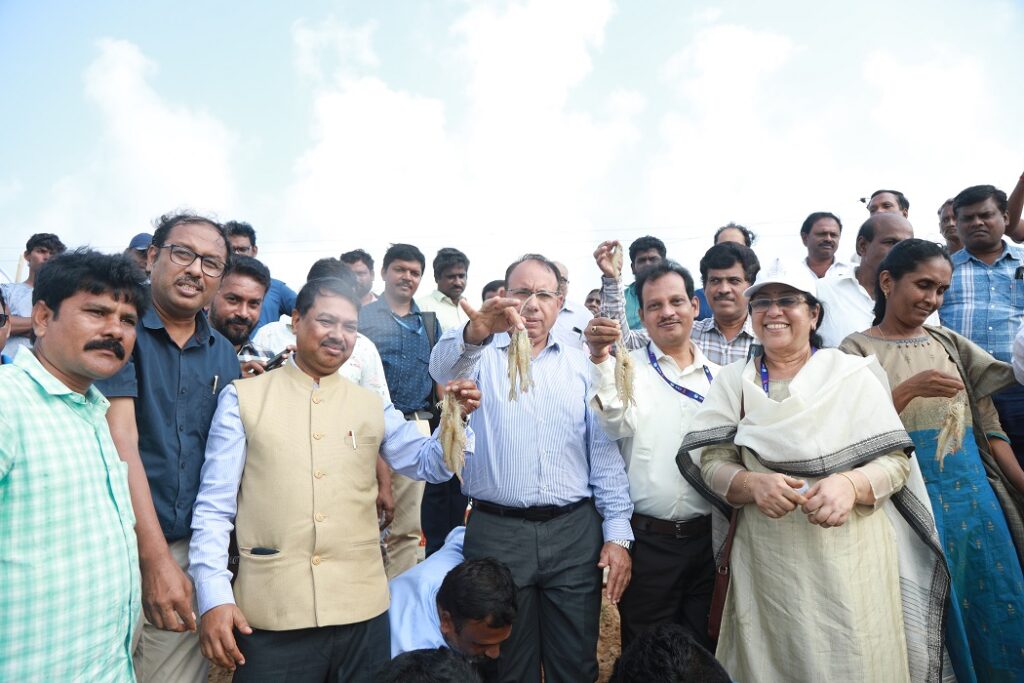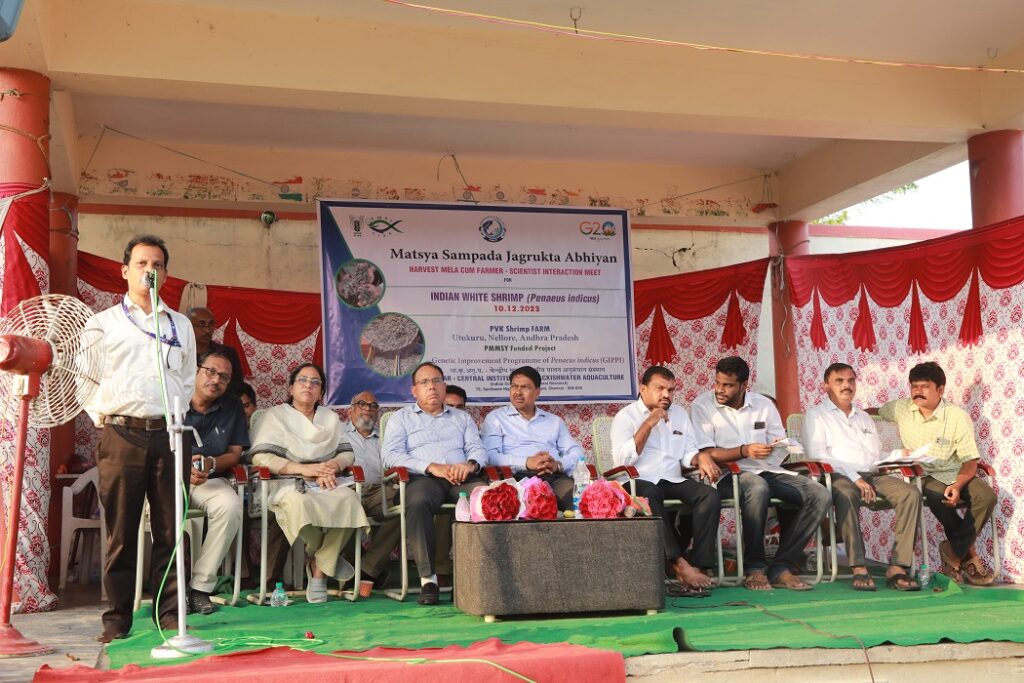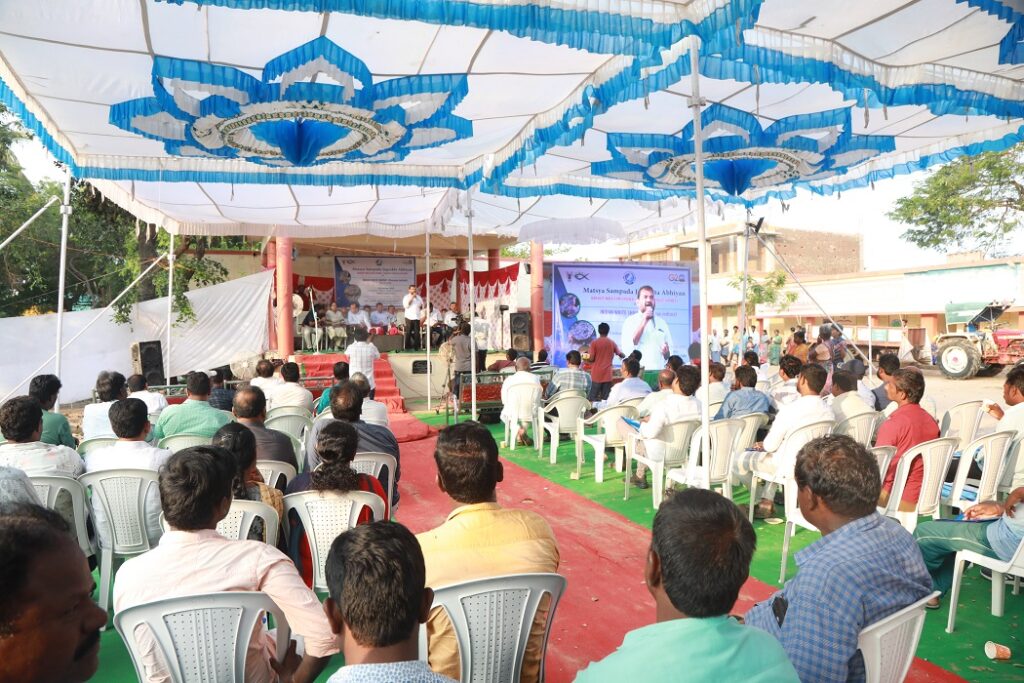Shrimp alone contributes about 70% India’s sea food export earnings to the tune of Rs.46,000 crores. However, the shrimp farming sector is dependent on a single exotic pacific white shrimp (Penaeus vannaemi) for its production of about 10 lakh tonnes. As an alternative complimentary species for farming, the scientists of ICAR- Central institute of Brackishwater Aquaculture have developed a cleaned stock of Indian white shrimp (P. indicus) which is growing on par with P.vannamei shrimp.
ICAR-CIBA cleaned broodstock bred indicus shrimp seeds are being given to shrimp farmers to assess its production potential at farmers ponds under “Genetic Improvement Programme of Penaeus indicus”. In this connection an on-farm harvest of Indian white shrimp indicus was held on 10-12-23 under the Matsya Sampada Jagrukta Abhiyan scheme.at Utukuru village, Nellore district in Andhra Pradesh. The harvest was witnessed by Dr. J.K.Jena, Deputy Director General (Fisheries), ICAR, New Delhi, Dr. V. Kripa, Member Secretary, Coastal Aquaculture Authority, Govt. of India, Dr. Kuldeep Kumar Lal, Director, ICAR-CIBA, officials from MPEDA, NaCSA, Department of Fisheries, along with 200 shrimp farmers in the neighbourhood villages of Nellore district and the representatives from the agencies associated with shrimp farming sector. Farmers who cultured it perceived that Indian white shrimp better in resisting white faecal disease which is the devastating problem in shrimp farming as of now. The P.indicus shrimp exhibited good growth rate on an average @ 0.3 gm per day and attained 20 gm in 90 days of farming with cost effective feed.
After the harvest, Farmers- Scientists interaction meeting on P.indicus shrimp farming was organized. While interacting with farmers and other stakeholders Dr. J. K. Jena, DDG (Fisheries), ICAR, congratulated the farmers for having a good shrimp harvest in partnership with ICAR-CIBA. He emphasized that Govt. of India the Prime Minister Matsya Sampada Yojana (PMMSY) is funding for development of Genetically Improved P. indicus shrimp broodstocks as “Make in India” commodity to promote the diversification of shrimp farming sector which is at present monopolised by P.vannamei shrimp. Low sale price, increasing costs of inputs and diseases are the major constraints in shrimp farming as of now. Domestic consumption of shrimp is low mainly because most of the northern states were unaware of shrimp consumption and its health benefits. Therefore, all the fisheries development agencies should work together as a team to promote the domestic consumption of shrimp he emphasised. Dr.V. Kripa, Member Secretary, CAA underlined that P.indicus shrimp is our native species which has a good growth potential. She appreciated the team effort of CIBA scientists and shrimp farmers in taking up the demonstration of P. indicus farming. Mr. Krishna Reddy progressive farmer, who farmed the P.indicus shrimp expressed his satisfaction on the performance of P.indicus shrimp he observed that P.indicus shrimp could white faecal disease / EHP disease while neighbouring shrimp farms failed due to disease. The farmer stocked 1.6 lakhs indicus seeds in 1.7 acre pond and the shrimp could reach a weight of 20g in 93 days. The production cost realised was Rs.150 per kg.
Dr.Kuldeep Kumar Lal, Director, ICAR–CIBA, Chennai in his introductory remarks explained the process involved in the Genetic improvement and developing the “Clean broodstock” is the first step towards it. He appreciated the progressive farmer who farmed indicus shrimp for his commitment and patience which beard him the fruit. P. indicus shrimp is showing similar potential vis-a-vis vannamei which is genetically improved. Policy intervention is required for all the three shrimp species may be farmed as per the requirement of the farmers. Dr. Akshaya Panigrahi, Principal Investigator of GIPPI project narrated the results of the several on-farm demonstrations conducted in the coastal states of the country and summarised that indicus shrimp is performing well in the farmers ponds. Compared to other shrimp species the aeration requirement is low, mineral requirement is also minimum for this indigenous species he informed. Dr.C.P.Balasubramanian, Head, Crustacean Culture Division of CIBA informed that the domestication of P.indicus has been showing promising results with gradual reduction in duration of maturation. During the interaction, Shri. Konder Anil executive member, APCFO and shrimp farmers felt that P.indicus shrimp is performing and requested for the supply of indicus shrimp seeds to all the farmers.
